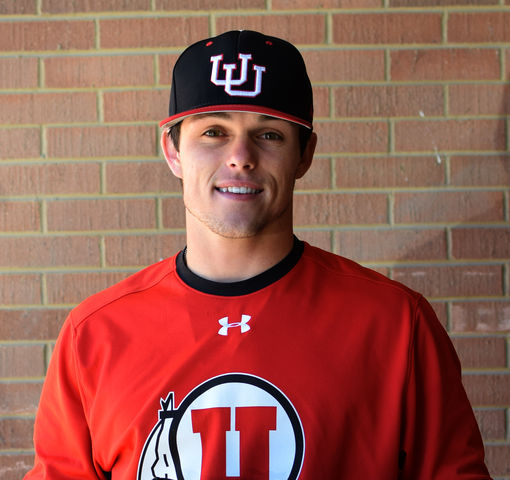In his first career start with the Utes, Riley Ottesen took the mound for Sunday’s matchup against the Minnesota Gophers. In three and a third innings, the freshman gave up four runs on six hits and retired five batters before being called back to the dugout.
It was a less-than-auspicious start for the former standout at American Fork High School — Ottesen led the Cavemen to their first state title in 27 years, was named 2012’s Most Valuable Player in the 5A Division and was Deseret News’ “Mr. Baseball” in 2013 — but it was a crucial step in returning to the sport in which he had made a name for himself.
“I was really nervous,” Ottesen said. “I was struggling with staying confident and staying with the approach that I would always use in a high school game.”
Looking at the way Ottesen performed on Sunday, it was hard to believe it had been over two and a half years since Ottesen last pitched in a game situation. It’s even harder to believe that only a little more than eight months ago, he was wrapping up his mission for the Church of Jesus Christ of Latter-day Saints in Fujieda, Japan.
It seemed fitting that one of Utah Baseball’s rising stars should be called to serve in a country that shared his passion for America’s Pastime, and Ottesen said a mutual admiration for baseball helped him adjust to the culture shock and connect with the community he was serving.
“I was fortunate to have come across a couple of high school [baseball] teams and a lot of fans of American baseball. That was huge over [in Japan],” Ottesen said. “I was also fortunate enough to be able to talk a little bit of baseball [with them].”
In one of his memorable experiences on the mission, Ottesen was able to put his love of baseball to good use, volunteering at a Japanese school to help them master the game.
“I was fortunate enough to do community service at a local junior high, to teach them the ‘American’ ways of playing baseball, and it was a very fun time,” Ottesen said.
An unthinkable sacrifice for most college athletes, Ottesen did not throw a single pitch while on his mission, but he firmly believes any setback to his athletic career was justified by the life-changing experience.
“Japan was the best thing that’s ever happened to me,” he said. “A mission isn’t always the best two years of your life, but it’s the best two years for your life. It’s helped shape me into a person, a man and a husband that I may want to become in the future.”
Ottesen said it was a definite challenge to get back in the swing of things after stepping away from baseball for two years, but that he is confident his training this offseason has gotten him back up to speed for the Utes’ 2016 campaign.
“Coming back, working out at a different elevation was hard for me — it was a very slow process,” Ottesen said. “Not throwing for two years, I obviously can’t just jump into things quickly and start throwing, I’ve had to go by a process and be patient with it and trust in that process. I’ve gotten in better shape, and my arm is in even better shape, so I think these past eight months have been alright for me.”
His work ethic and talent have had an impression on the team’s coaches and other players, and head coach Bill Kinneberg foresees Ottesen having a major impact for the Utes in the weeks and months to come. The head coach has even called him the “frontrunner to be a front-line starter for us” heading into the season.
The fact that Ottesen is already in the mix of Ute pitchers on the mound is no easy feat, considering that Utah’s returning pitchers accounted for 75 percent of last season’s innings.
Having used his commitment to the sport to break a championship drought at American Fork and break down barriers in Japan, Ottesen is primed and ready for the next step of his baseball career to begin here at the U.
t.crum@dailyutahchronicle.com
@tylerfcrum


